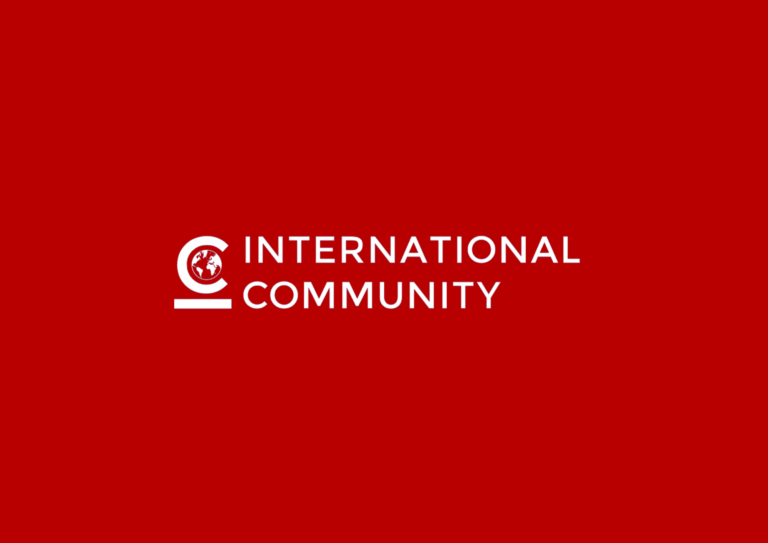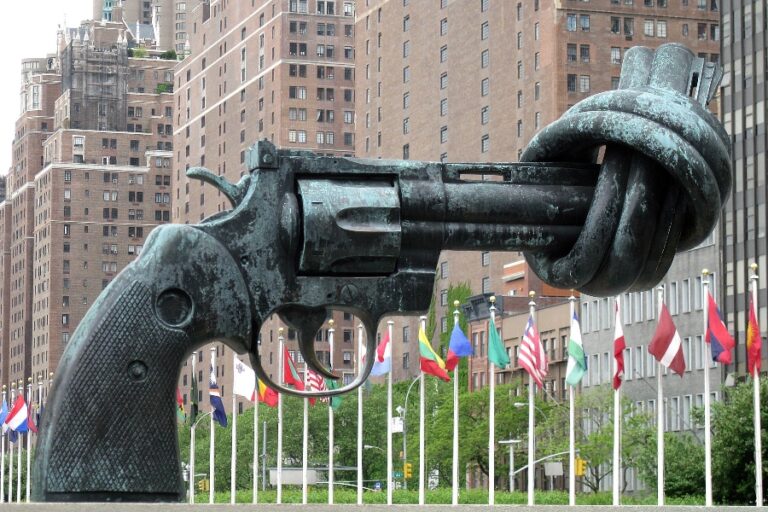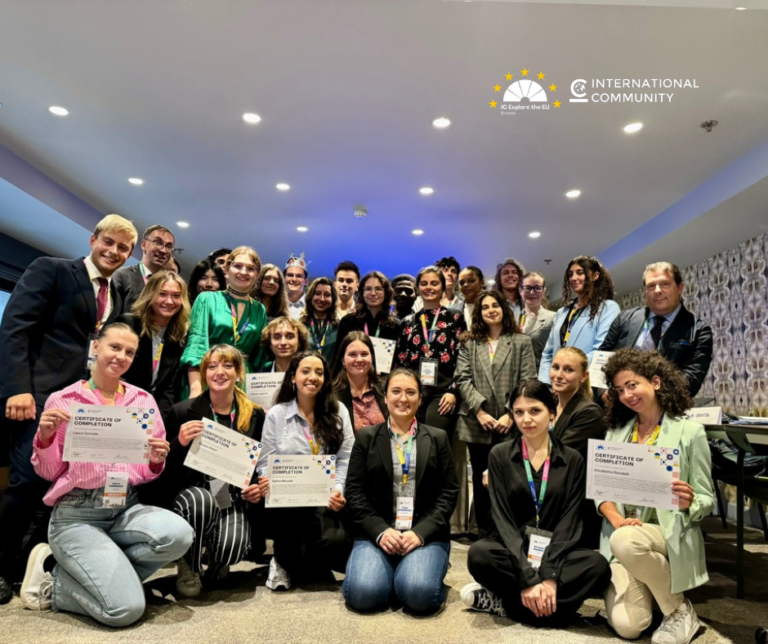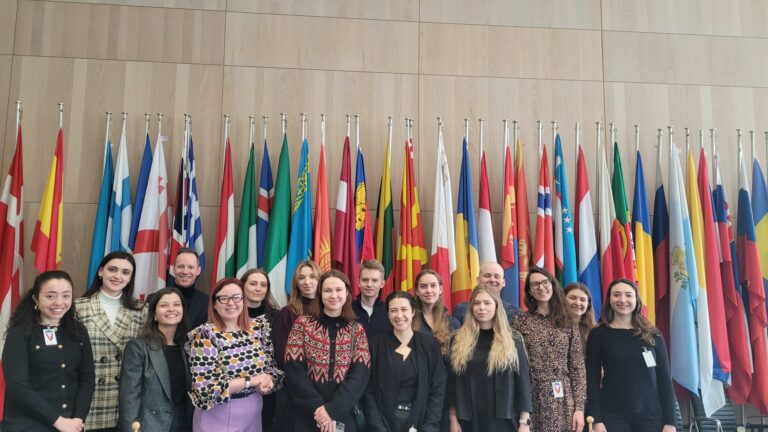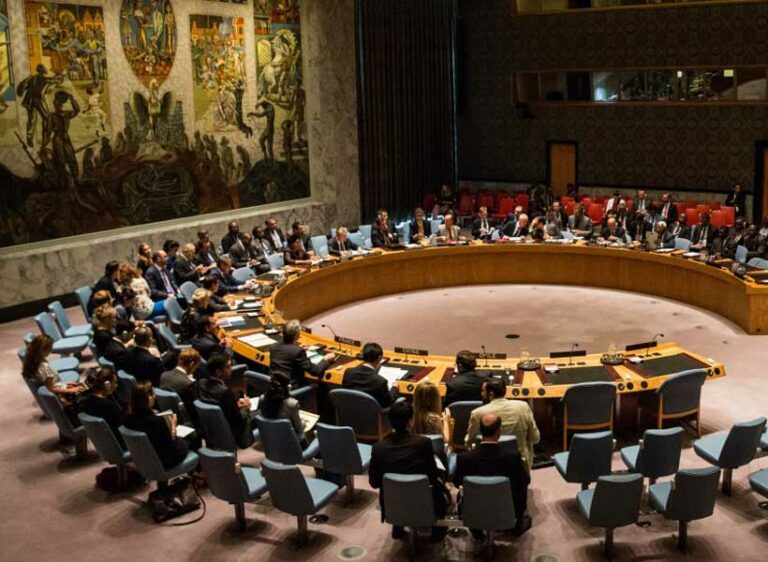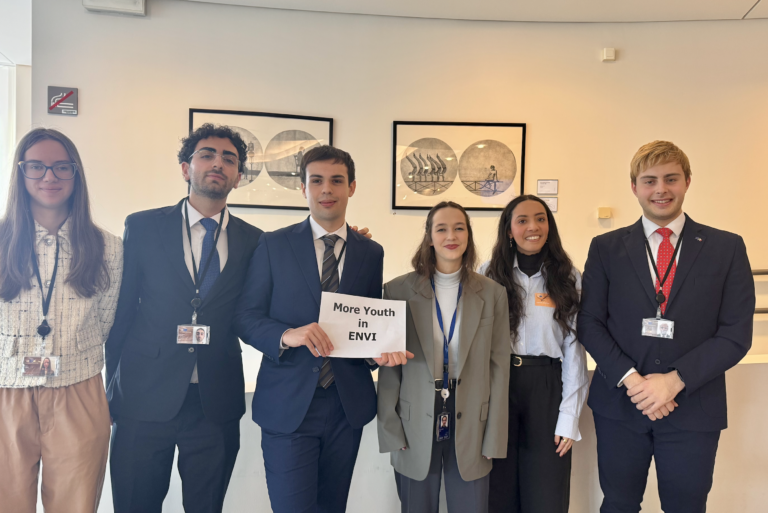EU’s Multilateralism in Vienna: A Deep Dive into International Cooperation
On the 28th of March 2025, a group of young professionals and students passionate about international relations and advocacy had a fruitful meeting with Ambassador Carl Hallergard, Head of Delegation of the European Union to the International Organizations in Vienna, and Alain Georges Matton, Press Attaché- Communication and Public Information Officer. The event, which took place inside the ICON building in Vienna, was organized by the International Community NGO and provided all the participants with an in-depth insight into the EU’s efforts to foster multilateralism at the international level.
The meeting kicked off with Ambassador Carl Hallergard providing an overview of the
agencies that work at the multilateral level and ensure the EU’s presence in Vienna. Namely, the Delegation of the EU to the International Organizations in Vienna is the European Union’s diplomatic mission that represents the EU and participates in matters of specific EU interest at the United Nations or specialized agencies established in Vienna, such as the European Union Agency for Fundamental Rights (FRA). Afterwards, Ambassador Hallergard highlighted the strict cooperation between the EU and the UN bodies, which covers a wide spectrum of areas ranging from industrial development to human rights, from nuclear non-proliferation to fighting corruption and crime. In this context, the Delegation of the EU in Vienna is responsible for the representation of the EU to the United Nations Office on Drugs and Crime (UNOCD) and the International Atomic Energy Agency (IAEA), to name a few.
Since 2011, the EU has been an observer with enhanced status at the UN General
Assembly, which allows the EU to present common positions, make interventions, present proposals and participate in the general debate each September. What emerged clearly from Ambassador Carl Hallergard’s intervention was the strong European Union’s commitment to strengthening multilateralism in a global scenario
marked by complex challenges that require collective action and effort. Indeed, this has always been the EU’s approach to international relations as it has put international cooperation based on rules, peace and diplomacy at the centre of its internal and external action.
Currently, the majority of efforts are being put into supporting Ukraine after its invasion by Russia. The EU delegation has been briskly working on leveraging a dialogue within the UN to convince all the States to support Ukraine and strongly condemn the Russian breach of international law. The Russian attack on the nuclear power plant of Zaporizzja in Ukraine is also raising lots of concern within the EU as it threatens the shared commitment to nuclear non-proliferation efforts. The EU has played a key role in facilitating the debate on the non-proliferation regime and was the key facilitator of the Iran nuclear talks and coordinates the implementation of the Joint Comprehensive Plan of Action (JCPOA). In such a context, the EU cooperates with the International Atomic Energy Agency (IAEA), which is the international centre for cooperation for the peaceful use of nuclear energy. The Agency works with its Member States and multiple partners worldwide to promote the safe, secure and peaceful use of nuclear technologies, especially in an era of global challenges and tensions.
The Delegation of the European Union in Vienna also represents the EU to the United
Nations Office on Drugs and Crime (UNODC), which is a global leader and an important partner for the EU when it comes to fighting drug activities and international transnational organized crime. For example, the illegal activities of importing cocaine to Europe and the U.S from Latin America is currently a big issue. The EU cooperates with UNODC in a broad range of geographical and thematic areas, such as GLO.ACT, the EU Cocaine Route Programme.
With the Trump administration, many things are changing, though. The U.S has recently announced a ninety-day suspension to the funds, and this could weaken the effectiveness of the UNODC’s work. After the ambassador’s speech, which was complemented by a Q&A, Alain Georges Matton enriched the interactive session with valuable insights on the risks carried by misinformation and artificial intelligence software. He highlighted the importance of fact-checking the news because fake news and deep fake news, some of which result from the misuse of AI technologies, threaten democracies and may be used as a means to interfere in other countries’ sovereignty and right to self-determination.
The summit ended with a message of encouragement by the Ambassador, who urged all countries like China and the U.S to prioritize economic development over human rights’ protection. It is high time for the EU to stand up in the global arena as the main defender of democracy and its core values.
Author: Costanza Allegri


